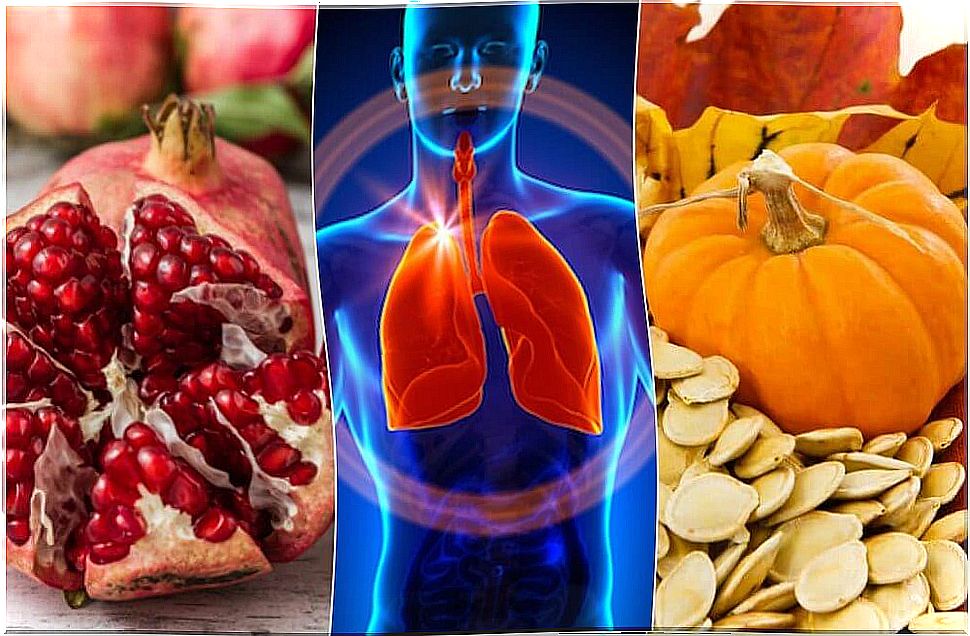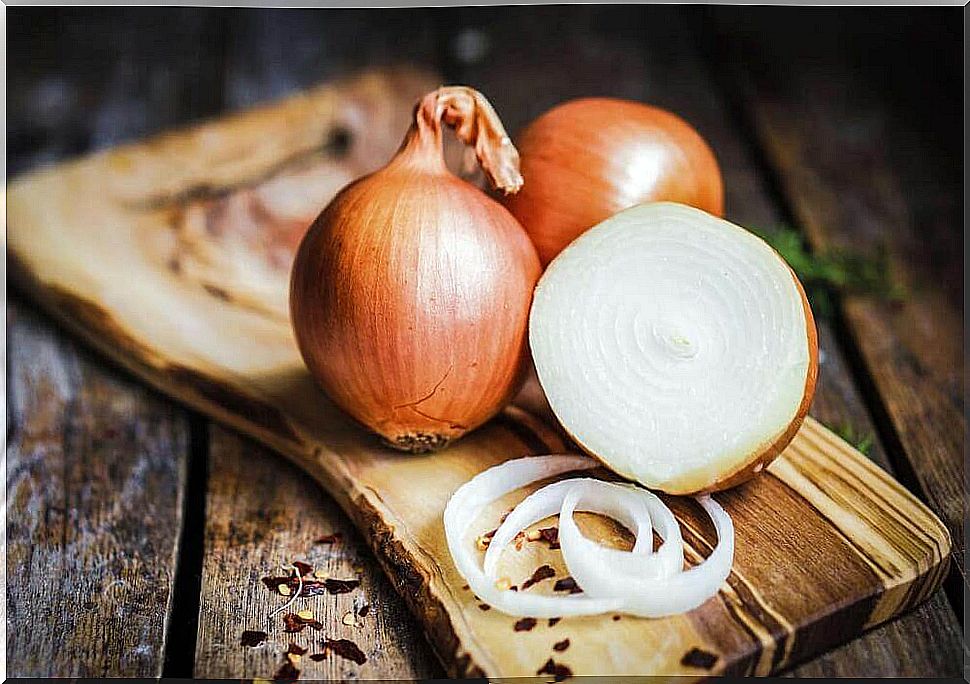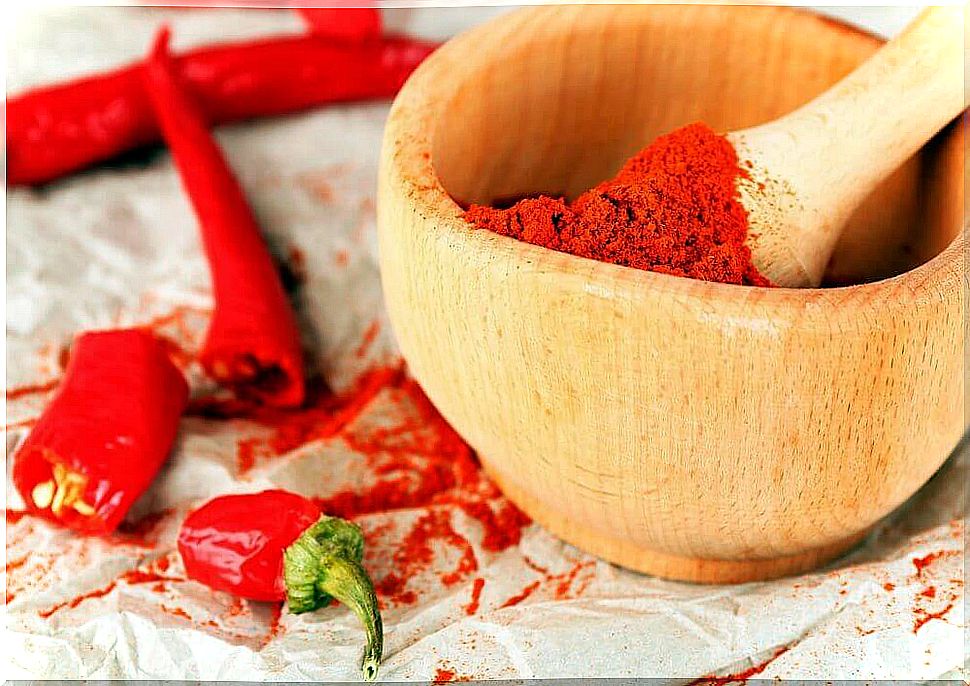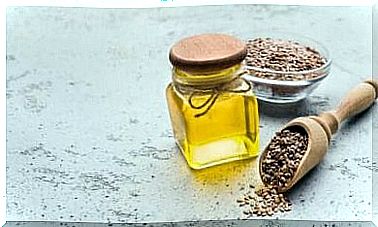6 Foods That Help Improve Lung Function
Did you know that capsaicin, in addition to adding a tangy flavor to cayenne pepper, gives it anti-inflammatory and vasodilator properties that optimize blood circulation and cellular oxygenation?

The lungs are organs that work tirelessly to give us the oxygen we need to live through our breath. Then they expel a residue of metabolism known as carbon dioxide through exhalation. All of this shapes lung function.
Their functions go beyond what we imagine. Because, among other things, they also filter out toxins, microorganisms and a wide variety of harmful particles that enter the body through the respiratory tract.
However, as with other vital organs, they are continually exposed to disease and functional impairment, especially when leading an unhealthy lifestyle.
Fortunately, there are ways to naturally detoxify them, providing them with the nutrients they need to keep their tissues healthy and function active.
One of these methods consists in increasing the consumption of certain organic foods which, because of their properties, facilitate the purification of the respiratory tract.
Therefore, we are going to share with you in detail the 6 best foods to take care of your lung function. Do not hesitate to incorporate them into your diet.
1. Onion

Due to its concentration of antibacterial, anti-inflammatory and antioxidant compounds, onion is one of the foods traditionally used as a supplement to improve lung and respiratory health.
- It serves to detoxify the lungs, helping to eliminate toxins that interfere with their proper functioning.
- Its vitamins and minerals protect cells against the effects of oxidative stress and, among other things, improve the immune system.
- It is ideal for fighting bacterial and viral infections, since it strengthens the immune system.
2. Ginger
Although it should not be consumed in excessive amounts, ginger can be added to the diet as a supplement to promote detoxification of the lungs.
- Its properties are due to its concentration in gingerol, an active compound with antioxidant and anti-inflammatory action, capable of inhibiting the negative effects of free radicals.
- It contains vitamins, minerals and essential oils. They help cleanse the lungs, thus reducing the impact of toxins on the tissues.
- It is an antibacterial and an antiviral, so it helps prevent and treat some common respiratory infections.
3. Cayenne pepper

Moderate consumption of cayenne pepper has interesting effects on lung function. Not only because it protects the respiratory tract, but also because it reduces inflammation and helps detoxify them.
- It contains a substance: capsaicin. It is an active substance which, in addition to its spicy aroma, gives it anti-inflammatory, antioxidant and vasodilator properties.
- In addition, it helps to improve blood circulation and thus optimizes the process of cellular oxygenation.
- It also reduces irritation of the mucous membranes of the respiratory tract and fights infections.
- It acts as a bronchodilator, which improves breathing in cases of bronchitis or breathing difficulties.
4. The pomegranate
Pomegranates are fruits full of antioxidants, vitamins and essential minerals. Their assimilation promotes purification of the lungs and respiratory tract.
- Its natural juice is a known detoxifying remedy, recommended to eliminate toxins and metal particles that infiltrate the respiratory system.
- Its important contribution of vitamins A and C strengthens the immune system. And reduces the risk of colds, flu and other infections that compromise lung health.
- It helps to minimize the impact of free radicals, promoting the protection of cells against cancer.
5. The apple

Apples are recommended fruits for those who decide to quit smoking. Because their nutrients help purify the lungs and control withdrawal.
- Rich in vitamins A, C and E, are antioxidant fruits that improve lung function.
- They contain water, essential minerals and fibers which together hydrate the tissues and help to maintain a balance in inflammatory processes.
6. The pumpkin
Pumpkin is a food rich in high quality nutrients. After assimilation into the body, they help protect cells and tissues.
- It is renowned for its high intake of beta-carotene, vitamin E and vitamin C, which are necessary to protect the lungs against attack by pathogens and toxins.
- Its diuretic and anti-inflammatory properties help to balance the level of tissue inflammation by preventing obstructive disorders.
- It helps improve immune function. Which is essential for preventing lung damage and respiratory infections.
Are you having trouble breathing? Do you have congested and irritated airways? Lung function should not be neglected.
If you find that your lungs are having difficulty functioning normally, increase your intake of these foods and enjoy their benefits.









